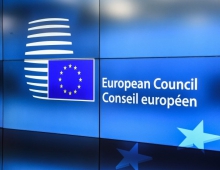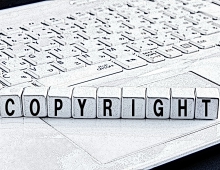
Consumers To Pay Royalties For Satellite Downloads
A bill tabled by some senators in the U.S. would require satellite radio companies to compensate the music industry for downloads, according to industry and congressional sources.
The legislation is aimed at compensating copyright holders as satellite radio services become distribution services.
The "Perform Act," or the "Platform Equality and Remedies for Rights Holders in Music Act of 2006," would require satellite, cable and internet broadcasters to pay fair market value for the performance of digital music.
Additionally, the bill would require the use of readily available and cost-effective technological means to prevent music theft. It was tabled by U.S. Senators Dianne Feinstein, D-Calif., Lindsey Graham, R-S.C., and majority leader Bill Frist, R-Tenn. and a hearing on the issue is scheduled for today.
"I believe that the Perform Act would help strike a balance between fostering the development of new technologies and ensuring that songwriters and performers continue to be fairly compensated for their works," Feinstein said.
Record industry executives argue that the new devices like U.S. largest satellite radio, XM Radio for instance, allow customers to save songs on the receivers without paying for the download rip off the copyright holder.
Warner Music Group chairman and CEO Edgar Bronfman Jr. supported the legislation. The bill protects copyright holders by ensuring that "the same rules apply to all of the satellite, cable and Internet services, which avail themselves of a compulsory license under" the nation's copyright laws, Bronfman said.
Sirius Satellite Radio has reached deals with the major record companies that compensate them for downloads on its S-50 receiver that allows customers to record content, but XM Radio has not. A pair of devices, the Pioneer Inno and Samsung NeXus, allows customers to record programming.
XM executives contend that the devices are nothing more than a high-tech way to record radio programming, which is protected. XM Chairman Gary Parsons' said that the draft law will "lead to a new tax being imposed on our subscribers."
The company already pays millions in copyright royalties to the record companies, and said their push for a new royalty is a negotiating tactic designed to push those rates higher. The copyright office is currently reviewing those rates.
"The reason the recording industry is now insisting on a different standard has nothing to do with fairness," Parsons said. "XM and the record industry are in the middle of renegotiating their performance license. By changing the standard now, the recording industry hopes to stack the deck in its favor."
The "Perform Act," or the "Platform Equality and Remedies for Rights Holders in Music Act of 2006," would require satellite, cable and internet broadcasters to pay fair market value for the performance of digital music.
Additionally, the bill would require the use of readily available and cost-effective technological means to prevent music theft. It was tabled by U.S. Senators Dianne Feinstein, D-Calif., Lindsey Graham, R-S.C., and majority leader Bill Frist, R-Tenn. and a hearing on the issue is scheduled for today.
"I believe that the Perform Act would help strike a balance between fostering the development of new technologies and ensuring that songwriters and performers continue to be fairly compensated for their works," Feinstein said.
Record industry executives argue that the new devices like U.S. largest satellite radio, XM Radio for instance, allow customers to save songs on the receivers without paying for the download rip off the copyright holder.
Warner Music Group chairman and CEO Edgar Bronfman Jr. supported the legislation. The bill protects copyright holders by ensuring that "the same rules apply to all of the satellite, cable and Internet services, which avail themselves of a compulsory license under" the nation's copyright laws, Bronfman said.
Sirius Satellite Radio has reached deals with the major record companies that compensate them for downloads on its S-50 receiver that allows customers to record content, but XM Radio has not. A pair of devices, the Pioneer Inno and Samsung NeXus, allows customers to record programming.
XM executives contend that the devices are nothing more than a high-tech way to record radio programming, which is protected. XM Chairman Gary Parsons' said that the draft law will "lead to a new tax being imposed on our subscribers."
The company already pays millions in copyright royalties to the record companies, and said their push for a new royalty is a negotiating tactic designed to push those rates higher. The copyright office is currently reviewing those rates.
"The reason the recording industry is now insisting on a different standard has nothing to do with fairness," Parsons said. "XM and the record industry are in the middle of renegotiating their performance license. By changing the standard now, the recording industry hopes to stack the deck in its favor."





















